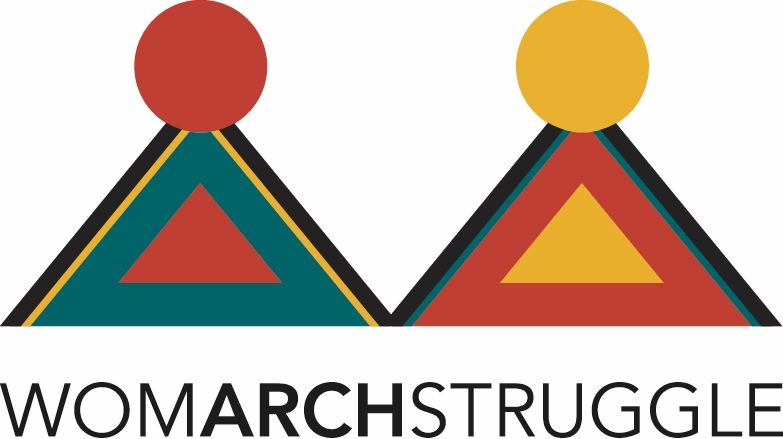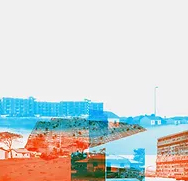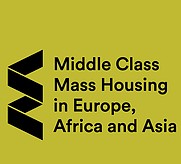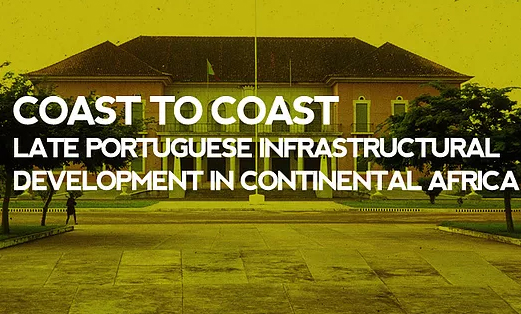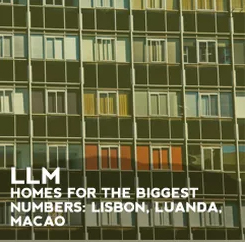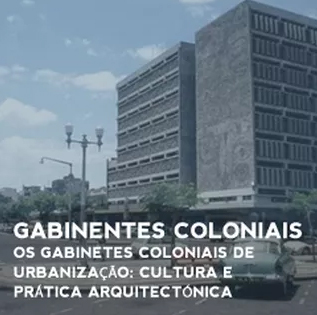Impacto dos trabalhadores nas obras públicas em Macau durante a administração portuguesa (1849-1999)
Assistente de Investigação
Como é que os trabalhadores das grandes infraestruturas e edifícios públicos em Macau durante o domínio português influenciaram a sua concepção e construção? Como se desenvolveram as relações entre as instituições centrais sediadas em Portugal (caso do Gabinete de Urbanização Colonial) e o Gabinete de Obras Públicas macaense, uma vez que este último foi influenciado por técnicos da China e Hong Kong? A investigação Colonial) e o Gabinete de Obras Públicas macaense, uma vez que este último foi influenciado por técnicos da China e Hong Kong? A investigação sobre as obras públicas coloniais (CPW) em Macau, sobretudo no século XX, é ainda escassa e pouco se sabe sobre a sua gestão e funcionamento laboral. Em que medida se diferenciou de outros antigos territórios coloniais? A disciplina da arquitetura, ao abordar as PW associadas ao colonialismo e à ocupação territorial em Macau, tem sobretudo estudado as equipas de especialistas, entre os quais arquitectos e engenheiros. Mesmo estudos sobre transferências de conhecimento conceptual entre técnicos de Macau, Portugal, Hong Kong e China são diminutos. Esta ênfase nos actores especialistas não considera a contribuição da força de trabalho anónima que labutou em infraestruturas e edifícios públicos. Continuam a faltar questões críticas sobre a mão de obra: quem eram estes trabalhadores? De onde vinham? Como é que foram recrutados e pagos? Que competências traziam? Que formação receberam? Que consequências tiveram as suas experiências de trabalho? Que conflitos provocaram? Como é que resistiram e colaboraram? Em resposta, LabourMap-Macao avaliará o impacto do trabalho em massa para inquirir o papel destes trabalhadores (ainda) invisíveis. Serão analisados planos directores, projectos de arquitectura, locais de construção e movimentos laborais para oferecer narrativas mais complexas sobre a relação entre a colonização portuguesa e história de Macau através das PW. O projecto visa criar uma linha de investigação que cruza arqu...
Informação do Projeto
2025-02-15
2026-08-14
Parceiros do Projeto
Architecture, Colonialism and Labour. The role and legacy of mass labour in the design, planning and construction of Public Works in former African territories under Portuguese colonial rule
Investigadora
A disciplina de arquitetura, ao lidar com Obras Públicas associadas ao colonialismo e à ocupação territorial, continua a centrar-se na análise da constituição das equipas de projeto, dos gabinetes de Obras Públicas coloniais e dos próprios arquitetos e engenheiros. Este foco na “elite projetista” ignora uma contribuição crítica para estas Obras Públicas, nomeadamente a força de trabalho responsável pela concretização destas estruturas. Assim, continuam a faltar questões críticas sobre a força de trabalho envolvida na materialização dos planos arquitetónicos: quem eram esses trabalhadores? De que grupos étnicos provinham? Como surgiam em contingentes que podiam agregar alguns milhares de indivíduos? Como se processava o seu recrutamento? Quais eram as suas expectativas? Como eram pagos? Que formação recebiam? Que repercussões tiveram estas experiências de trabalho (maioritariamente compulsivo)? Que conflitos provocaram nas sociedades coloniais? Como resistiam ao recrutamento? Como colaboravam? Como lidar com este legado?
Em resposta, o projeto ArchLabour irá desenvolver um novo enquadramento teórico para avaliar o trabalho massivo, com o objetivo de dar visibilidade a estes trabalhadores invisíveis, estabelecendo assim uma ligação entre a subalternidade histórica e a desigualdade que ainda assombra as comunidades que herdaram este passado. Através do estudo das diversas experiências coloniais nos países africanos que têm o português como uma das línguas oficiais (Cabo Verde, Guiné-Bissau, São Tomé e Príncipe, Angola e Moçambique), e cobrindo um amplo período que se estende desde a colonização moderna, iniciada após a Conferência de Berlim, passando pelas práticas de exploração do capitalismo industrial, até aos anos imediatamente seguintes à independência africana, o projeto cruzará a história da arquitetura colonial e o tema do Trabalho, com a história da Ciência aplicada à construção e os estudos pós-coloniais em arquitetura.
Informação do Projeto
2024-01-01
2028-12-31
Parceiros do Projeto
- DINAMIA'CET-Iscte (CT) - Líder
Mulheres Arquitectas na antiga África Colonial Portuguesa: género e luta pelo reconhecimento profissional (1953-1985)
Investigadora
Há profissões como a arquitectura onde, apesar de tudo o que as mulheres conquistaram, uma hegemonia masculina persiste e não é muito permeável a revoluções de género. Este projecto exploratório visa identificar e descrever a luta das arquitectas na África de língua portuguesa pelo reconhecimento e representação da carreira, como consequência das desigualdades herdadas do passado colonial. A investigação tem continuamente colocado perguntas como: Quem eram as arquitectas que trabalhavam nos antigos territórios coloniais portugueses em África? Qual era a sua origem étnica? Qual era a sua origem profissional e educativa? Quais eram as suas lutas pelo reconhecimento profissional? Com a independência destes novos países, que papéis assumiram estas mulheres arquitectas? O projecto procura preencher uma lacuna na história dos países africanos colonizados por Portugal – Cabo Verde, Guiné-Bissau, S. Tomé e Príncipe, Angola, e Moçambique – abordando a condição das arquitectas precursoras entendidas como as primeiras profissionais a trabalhar nestes territórios. A oferta de trabalho durante o domínio colonial foi limitada às Obras Públicas Coloniais e aos escritórios familiares. A transição para a independência traria novidades, tais como programas de cooperação e a reforma dos serviços públicos. A investigação considerará estas mudanças na profissão e na cultura arquitectónica, questionando a forma como as mulheres sobreviveram e emergiram em condições de extrema vulnerabilidade laboral, no entanto, por vezes impondo-se pela falta de técnicos. O projecto irá registar 2 períodos históricos: 1953-1974, definidos pelo colonialismo tardio (desde a chegada da primeira arquitecta em África, até à independência africana); 1975-1985, caracterizado como o período pós-independência (a partir da transição governamental, até à primeira mulher formada no curso de Arquitectura na Universidade Agostinho Neto, em Angola). Diferentes tipos de carreiras serão abordados nesta linha cronológica...
Informação do Projeto
2023-03-01
2024-08-31
Parceiros do Projeto
- DINAMIA'CET-Iscte (CT) - Líder
- AHU - (Portugal)
- IPGUL - (Angola)
UrbanoScenes. Imaginários pós-coloniais de urbanização em investigação prospectiva. Portugal e Angola
Investigadora
UrbanoScenes propõe explorar, em perspetiva epistemológica pós-colonial, a construção, reprodução e contestação dos imaginários de urbanização, a partir de Portugal, Angola e suas relações, focando-se nas formas com as quais a dicotomia sociedade/natureza – e outras derivadas, e.g. colónia/metrópole, urbano/rural, humano/tecnológico, moderno/prémoderno, desenvolvimento/subdesenvolvimento, Norte/Sul – estrutura os imaginários dominantes e (re)produz relações sócio-espaciais de poder. Que a normatividade associada a tais imaginários serve para legitimar e reproduzir formas de violência/injustiça inerentes ao processo de urbanização global, sejam elas estruturais, culturais ou estatais, configura uma hipótese central do projeto. Portanto, UrbanoScenes investiga também os imaginários urbanos alternativos que coexistem com os dominantes.
Informação do Projeto
2022-01-15
2025-07-14
Parceiros do Projeto
- DINAMIA'CET-Iscte (CT)
- ICS/UL - Líder (Portugal)
Controle e violência através da habitação e da arquitectura, durante as guerras coloniais. O caso português (Guiné-Bissau, Angola e Moçambique): documentação colonial e análise crítica pós-independência
Investigadora Responsável
Qual foi o papel da Arquitectura durante a guerra colonial (1961-74) no suporte ao colonialismo português? Partindo da rara bibliografia existente que interpela Arquitectura, Colonialismo e Guerra (He17;He18), mas também ponderando a relação entre Violência e Colonialismo (LuMo14), a pesquisa foca-se na produção de Habitação durante as guerras de libertação na antiga África Continental Portuguesa, e suas repercussões no período imediato às independências das nações da Guiné-Bissau, Angola e Moçambique. O projecto prevê 2 fases: 1) análise da produção da habitação realizada nos últimos 14 anos de colonialismo, considerando a composição da sociedade colonial e os 3 agentes de Obras Públicas Coloniais (OPC ) envolvidos, abordada na perspectiva do tratamento arquivístico e documental, cartográfico e descrição historiográfica; 2) identificação e análise crítica do estado desse parque habitacional no período imediato a 1974/75 (abandono, reconfiguração e apropriação) e seu contributo na formação de fenómenos como a desigualdade no acesso e na qualidade (plástica, técnica e funcional) da casa pelas sociedades pós-independências. A investigação questiona o papel da guerra na criação de mecanismos de controle, recorrendo à arquitectura e ao urbanismo, tendo a produção de habitação como centro. Observa 3 fenómenos: a) novos bairros de expansão urbana de classe-média e económicos, edificados sobre musseques e caniços, para controle de populações; b) colonatos em áreas económicas estratégicas; c) reordenamentos rurais resultantes de deslocações massivas de camponeses africanos em territórios de guerra. Traça uma leitura contínua entre colonização e pós-independência, relacionando o direito à habitação com as diferentes infraestruturas residenciais herdadas do período colonial. Na 1ª fase o estudo considera os 3 grupos de habitantes que caracterizaram as narrativas coloniais: a) colonos europeus, b) assimilados e c) populações africanas. Analisa as paisagens urbana e rural onde...
Informação do Projeto
2021-03-29
2024-11-30
Parceiros do Projeto
- DINAMIA'CET-Iscte (CT) - Líder
- DGLAB - (Portugal)
- EME - (Portugal)
- Gulbenkian - (Portugal)
- IPGUL - (Angola)
- UAN - (Angola)
- UEM - (Moçambique)
European Middle Class Mass Housing
Investigadora
The main challenge of this Cost Action is to create a transnational network that gathers European researchers carrying studies on Middle-Class Mass Housing (MCMH) built in Europe since the 1950s. This network will allow the development new scientific approaches by discussing, testing and assessing case studies and their different methodologies and perspectives. MCMH has been generally underestimated in urban and architectural studies and there is still a lack of comparative analysis and global perspectives. The number of transnational publications and scientific meetings has also been scarce. By crossing different approaches focus on Architecture, Urbanism, Planning, Public Policies, History, Sociology new concepts and methodologies will arise. Therefore, the Action aims to produce a wider understanding of MCMH sprawl, deepening on-going researches and focusing on the existing case studies. The current methodologies, surveys, catalogue and contextualization allow an initial mapping of relevant case studies, their diverse degrees of resilience and how they have been adapted to current (urban and social) conditions. It is intended to develop the knowledge of the interaction between spatial forms, behaviours and satisfaction and to combine methodologies of architectural and social analyses. The Action will be developed by three Working Groups, coordinated by a Core Group: Documenting the MCMH; Development of a specific set of (new) concepts for MCMH analyses; Leverage contemporary architecture interventions and Public Policies. In the Action will be involved researchers related to Mass Housing, MCMH Architecture and Urbanism, Planning and Public Policies, Sociological studies, Architecture History and Modern Heritage.
Informação do Projeto
2019-04-03
2023-10-02
Parceiros do Projeto
- DINAMIA'CET-Iscte (CT) - Líder
Conjuntos Habitacionais para a Classe Média na Europa, África e Ásia
Investigadora
Propõe-se uma análise comparada sobre o alojamento em massa da Classe Média (MCMH) na Europa, África e Ásia, introduzindo novos casos de estudo de modo a aprofundar investigações existentes, a partir de metodologias já testadas: catalogação e contextualização de conjuntos habitacionais construídos entre os anos de 1950/80 em Itália, Bélgica, Portugal, Angola e China. Pretende-se identificar os modelos habitacional e urbano e mapear as alterações surgidas após 50 anos de uso, para entender como se adaptaram às condições actuais (urbanas e sociais), apoiando acções futuras. Os casos de estudo localizam-se em Milão, Antuérpia, Lisboa, Luanda e Macau, em periferias que ajudaram a consolidar e foram selecionados pela: 1) escala; 2) número de habitantes; 3) acessibilidade; 4) qualidade urbana e arquitectónica. Partindo-se de um conhecimento em formação propõe-se agora uma leitura comparada que reflicta sobre a expansão das cidades no contexto do crescimento demográfico após a II Guerra Mundial. Irá analisar-se o impacto dos modelos residenciais desenvolvidos em contextos europeus e a sua transposição para antigos territórios coloniais (África e Ásia). Os estudos que analisam o panorama habitacional transcontinental sob uma perspectiva arquitectónica e sociológica estão limitados a alguns casos regionais, não assegurando uma visão global que inclua: 1) a descrição histórica da evolução física da casa, do edifício e do bairro; 2) levantamento e análise do perfil dos habitantes. Irá avaliar-se a capacidade de resiliência destes bairros, testando e propondo formas de prolongar a sua vida útil, através da actualização dos esquemas funcionais dos apartamentos (adequando-os às novas exigências), renovação de infraestruturas sanitárias e sistemas construtivos e através do conhecimento do perfil de ocupação. Dar-se-á enfase à forma de promoção (pública ou privada) e ao seu efeito sobre o perfil do habitante actual (pioneiro, recente, imigrante). Os bairros estudados caracterizam-s...
Desenvolvimento portuário das infra-estruturas portuguesas na África continental (Angola e Moçambique): análise crítica e histórica e avaliação pós-colonial
Investigadora
Objetivos
1) a análise do processo infra-estrutural a partir do mapeamento de 3 tipologias específicas de Obras Públicas coloniais (PW), que serão abordadas na perspectiva de seu processamento arquivístico, documental e cartográfico e de sua descrição historiográfica;
2) a identificação e análise crítica do estado dessas infra-estruturas (reutilização, fortalecimento ou decadência), após as independências de 1975.
A pesquisa baseia-se na hipótese de que a infra-estrutura territorial colonial deixa marcas resilientes no ambiente construído pós-colonial e que esse impacto deve ser analisado de forma a apoiar ações futuras. O Arquivo Histórico Ultramarino possui uma parte essencial da coleção de documentos sobre o PW colonial dos séculos XIX e XX. O processo de arquivamento, catalogação e descrição será uma responsabilidade do projeto, tornando-os disponíveis para a comunidade científica.
Após o mapeamento, recorrendo à cartografia especializada, toda a documentação será recolhida, e os estudos de caso serão selecionados, com base em critérios específicos (relevância estratégica, escala, impacto no ambiente construído). Sua descrição detalhada e histórica segue, a fim de criar registros de inventário na plataforma web HPIP da FCG e referência no SIG, juntamente com a verificação do estado de conservação e com o levantamento das intervenções pós-dependência.
Informação do Projeto
2016-04-04
2019-12-31
Parceiros do Projeto
- DINAMIA'CET-Iscte (CT) - Líder
- Gulbenkian - (Portugal)
LLM - Homes for the biggest number: Lisbon, Luanda, Macao
Bolseira
A pesquisa visa pesquisar, catalogar e contextualizar projetos de habitação em Lisboa, Luanda e Macau, construídos entre os anos 1960 e 1980, que se destacaram para a grande ocupação e o alto número de pessoas alojadas. Destina-se a identificar os modelos habitacionais e urbanos existentes e mapear as mudanças após 40 anos de uso, a fim de compreender como se adaptar às condições atuais (urbanas e sociais) e apoiar o futuro. Metodologia: Inicialmente, começa com um detalhado descrição e processo histórico, criando registros de inventário, referenciados ao Sistema de Informação Geográfica e redestrução de projetos (para análises comparativas do design urbano e da unidade celular). Isso segue uma visita aos complexos para verificar seu estado de conservação, experimentando a situação urbana e descrevendo a evolução do perfil das populações atuais. Os questionários serão divulgados para relatórios de ocupação e satisfação social (distrito / moradia). As entrevistas qualitativas a grupos profundamente enraizados (grupos sociais e culturais de pertença) permitirão avaliar a integração na cidade. As visitas serão gravadas em video para "memória futura" e um documentário (três curtas-metragens de 30 minutos) será produzido. No ano passado, serão realizadas oficinas com as comunidades, envolvendo arquitetos, estudantes, moradores e instituições locais, propondo intervenções arquitetónicas baseadas em análises históricas e sociais e na tradição portuguesa de arquitetura participativa.
Informação do Projeto
2013-07-01
2015-12-31
Parceiros do Projeto
- DINAMIA'CET-Iscte
- AAM - (China)
- IHRU - (Portugal)
Os Gabinetes Coloniais de Urbanização: Cultura e Prática Arquitectónica
Bolseira
Este estudo teve como objetivo inventariar, catalogar e analisar o trabalho de Equipas sucessivas que pertenciam às estruturas dos Ministérios das Colónias e mais tarde do Ultramar (doravante designados ministérios no exterior) e que eram responsáveis pelo projeto arquitetónico faz parte de uma abordagem mais abrangente estudar sobre a cidade e a arquitetura produzida nos antigos territórios coloniais, cujo objetivo é promover o conhecimento do património intelectual e construído gerado pelos portugueses e disponibilizá-lo ao público em geral por meio de um sistema de consulta online .
Informação do Projeto
2010-02-01
2013-07-31
Parceiros do Projeto
- DINAMIA'CET-Iscte
- IICT - (Portugal)
- IHRU - (Portugal)

 English
English


